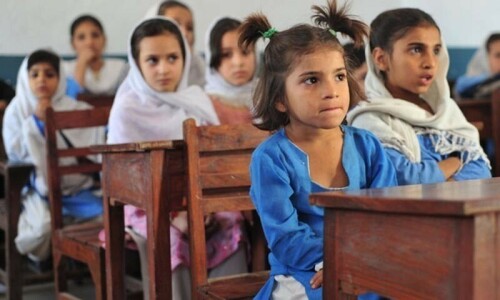In recent years, Pakistan has made significant strides in formulating comprehensive policies and plans to address the challenges posed by climate change. From the Climate Change Act to the National Climate Change Policy (NCCP) and subsequent updates, the country has demonstrated a commitment to tackling this global issue. However, the effectiveness of these measures hinges on their implementation at the grassroots level. Despite the existence of progressive legislation and frameworks, the localisation of Pakistan’s national climate agenda remains a critical challenge.
The Climate Change Act, enacted in 2017, laid the foundation for a coordinated response to climate change in Pakistan. Subsequently, the NCCP of 2012 and its updated version in 2021 provided strategic direction for climate action across various sectors. Additionally, the National Adaptation Plan of 2023 and the Climate Change Gender Action Plan (ccGAP) of 2022 underscored the importance of gender-responsive and inclusive approaches to climate resilience. While these legislative and policy instruments set ambitious goals and targets, their successful implementation relies on effective localisation.
The governance structure in Pakistan, extending from federal to provincial ministries and departments, encompasses key stakeholders responsible for climate action. However, the disconnect between policy formulation at the national level and implementation at the local level persists. This gap undermines the effectiveness of Pakistan’s climate agenda and impedes progress towards climate resilience.
Pakistan’s local governments are responsible to translate national climate policies into tangible actions that benefit communities on the ground. However, my recent interaction with senior-grade officers of local governments revealed a concerning lack of awareness about key climate frameworks such as the NCCP, National Adaptation Plan, and ccGAP certain regulations about urban planning, rainwater harvesting and solid waste management policies. This gap in knowledge highlights the urgent need for capacity-building initiatives and institutional support at the local level.
To bridge the gap between national climate policies and local implementation, concerted efforts are required at multiple levels. Firstly, there is a need for targeted capacity-building programmes to raise awareness among local government officials about existing climate frameworks and their relevance to local contexts. Training sessions, workshops, and knowledge-sharing platforms can facilitate information dissemination and build local stakeholders’ capacity.
I believe that horizontal and vertical coordination are crucial for effective climate adaptation efforts. Horizontal coordination will ensure collaboration across different sectors, agencies, line ministries, and stakeholders including agriculture, infrastructure, health, and the economy within the same level of government. Coordination among these sectors will ensure that adaptation strategies are comprehensive and integrated.
At the same time, vertical coordination should involve collaboration between different levels of government, such as local, provincial, and national authorities. Climate impacts vary by location, and adaptation measures need to be tailored to local conditions. Vertical coordination will ensure that local adaptation efforts are aligned with broader national strategies and policies, while also facilitating the exchange of information and resources between different levels of government.
Together, horizontal and vertical coordination will promote synergy, coherence, and effectiveness in climate adaptation initiatives, ultimately enhancing resilience to climate change impacts.
Furthermore, the development of localised action plans aligned with national climate priorities is essential. These plans should incorporate community perspectives, local knowledge, and participatory approaches to ensure relevance and ownership. By empowering local communities and governments to take ownership of climate action, Pakistan can enhance the effectiveness and sustainability of its climate initiatives.
Effective localisation of the national climate agenda requires collaboration and partnerships among government agencies, civil society organisations, academia, and the private sector. Multi-stakeholder platforms can facilitate dialogue, coordination, and resource mobilisation for local climate action. Engaging with communities, indigenous groups, and marginalised populations is also crucial to ensure inclusive and equitable climate responses.
To sum up, Pakistan must prioritise localised climate action to build resilience and achieve sustainable development. While national policies provide a framework, effective implementation at the grassroots level is essential. By empowering local communities and fostering collaboration, the country can accelerate progress towards a climate-resilient future. — The writer is a civil society activist
Published in Dawn, August 25th, 2024














































Dear visitor, the comments section is undergoing an overhaul and will return soon.